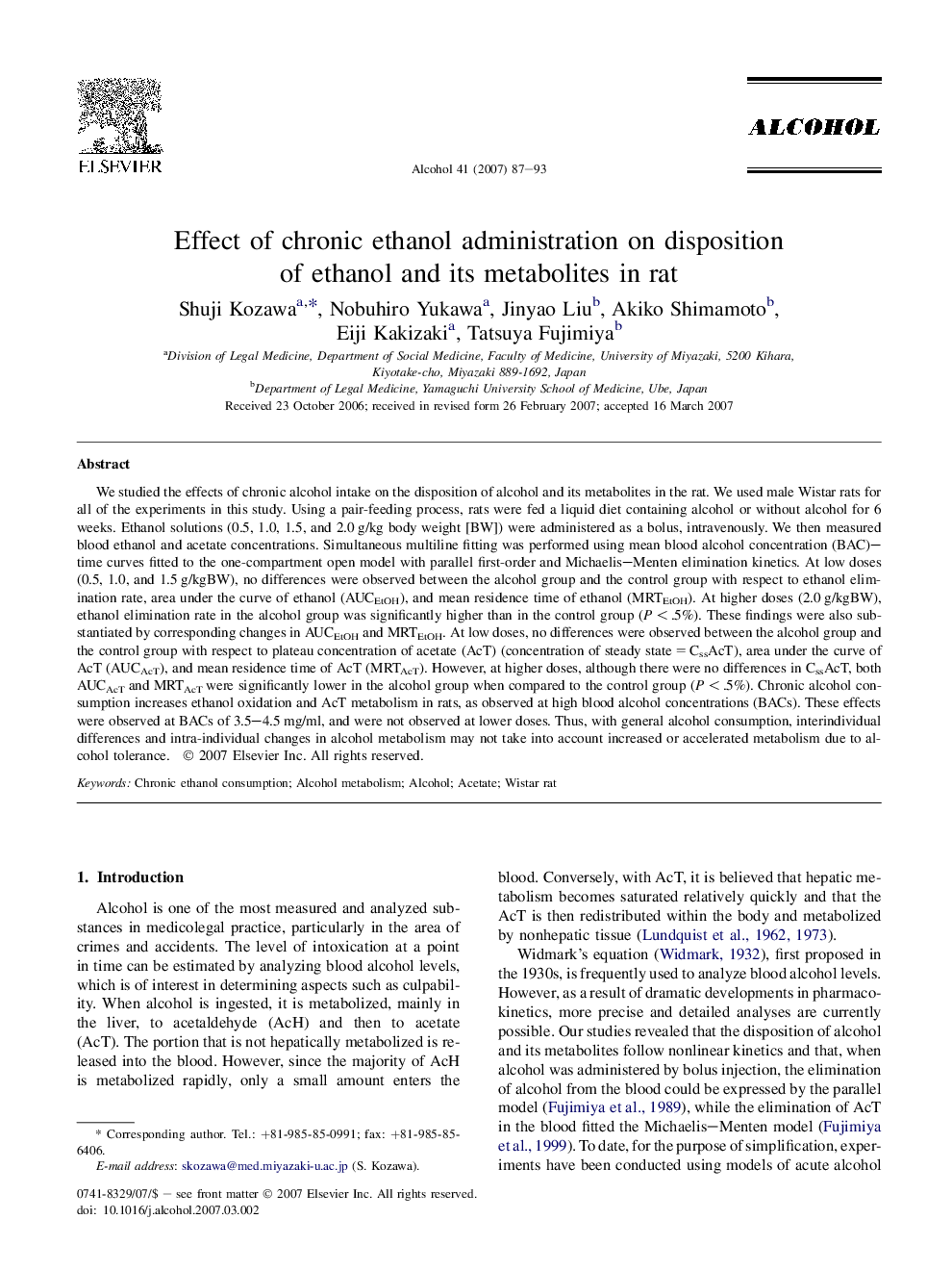| Article ID | Journal | Published Year | Pages | File Type |
|---|---|---|---|---|
| 1067904 | Alcohol | 2007 | 7 Pages |
We studied the effects of chronic alcohol intake on the disposition of alcohol and its metabolites in the rat. We used male Wistar rats for all of the experiments in this study. Using a pair-feeding process, rats were fed a liquid diet containing alcohol or without alcohol for 6 weeks. Ethanol solutions (0.5, 1.0, 1.5, and 2.0 g/kg body weight [BW]) were administered as a bolus, intravenously. We then measured blood ethanol and acetate concentrations. Simultaneous multiline fitting was performed using mean blood alcohol concentration (BAC)–time curves fitted to the one-compartment open model with parallel first-order and Michaelis–Menten elimination kinetics. At low doses (0.5, 1.0, and 1.5 g/kgBW), no differences were observed between the alcohol group and the control group with respect to ethanol elimination rate, area under the curve of ethanol (AUCEtOH), and mean residence time of ethanol (MRTEtOH). At higher doses (2.0 g/kgBW), ethanol elimination rate in the alcohol group was significantly higher than in the control group (P < .5%). These findings were also substantiated by corresponding changes in AUCEtOH and MRTEtOH. At low doses, no differences were observed between the alcohol group and the control group with respect to plateau concentration of acetate (AcT) (concentration of steady state = CssAcT), area under the curve of AcT (AUCAcT), and mean residence time of AcT (MRTAcT). However, at higher doses, although there were no differences in CssAcT, both AUCAcT and MRTAcT were significantly lower in the alcohol group when compared to the control group (P < .5%). Chronic alcohol consumption increases ethanol oxidation and AcT metabolism in rats, as observed at high blood alcohol concentrations (BACs). These effects were observed at BACs of 3.5–4.5 mg/ml, and were not observed at lower doses. Thus, with general alcohol consumption, interindividual differences and intra-individual changes in alcohol metabolism may not take into account increased or accelerated metabolism due to alcohol tolerance.
